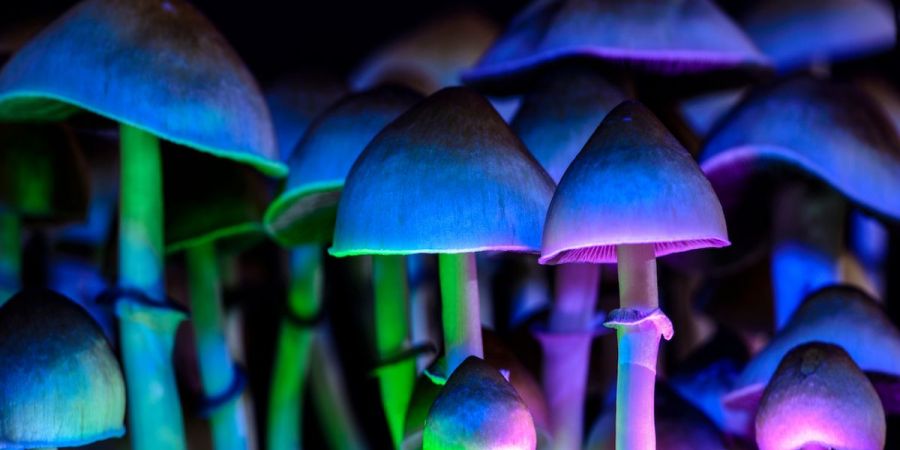

Psilocybin—the chemical that gives'magic mushrooms' its psychedelic properties—could be rejected as a recreational drug by the ignorant. It, like many other psychedelics, is classified as a Schedule 1 substance by the US government, which means it has a high potential for abuse and no currently recognised medical use in therapy. To many medical scientists, though, psilocybin is much more: it's a promising cure for a variety of ailments. Experts are increasingly seeing the chemical as a potentially helpful, low-risk tool for assisting patients in breaking their addictions to other narcotics.It's an understatement to say that finding new, effective therapies for substance use disorder is important, given that over 100,000 people died in the United States last year after overdoing on opioids and other drugs.
The body of evidence supporting the use of psilocybin in this context has been accumulating for some time. One of the most recent studies, published in Scientific Reports on April 7, looked at data from 214,505 U.S. adults who participated in the National Survey on Drug Use and Health (NSDUH) between 2015 and 2019, and discovered a link between past use of psilocybin—at any time in their lives—and a lower risk of opioid use disorder. The researchers looked at 11 criteria used by scientists to diagnose opioid use disorder (for example, spending a significant amount of time getting and using drugs) and discovered that previous psilocybin use was significantly correlated with lowered odds for seven of the criteria, and marginally correlated with two others.
This study has a key caveat: while it looked at correlations, it didn't discover any conclusive evidence that psilocybin use reduces the likelihood of opioid use disorder in and of itself. While the researchers controlled for factors such as educational attainment, annual household income, and age, there may be social or personal characteristics that distinguish psilocybin users from non-users, according to Grant Jones, a Harvard University graduate researcher who co-authored the study. "We don't know if there are various psychological profiles that make [some people] more immune to developing substance use disorders," Jones explains.
Nonetheless, the study adds to the growing body of data suggesting psilocybin could be useful as a treatment for substance abuse. For example, after taking two to three moderate to high-level doses of psilocybin, the majority of 15 volunteers were able to quit smoking for at least 16 months, according to a 2017 Johns Hopkins University pilot research co-authored by Albert Garcia-Romeu. In 2015, a comparable proof-of-concept study performed by Michael Bogenschutz, a professor of psychiatry at New York University Grossman School of Medicine, discovered that after using psilocybin, addicts' abstinence rose considerably. Observational studies, such as Jones' and Garcia- Romeu's, have also indicated that psilocybin is linked to a lower risk of consuming substances like cocaine, marijuana, and opioids.
Additional study has revealed that psilocybin may also be used to treat depression. For example, a small randomised clinical trial published in JAMA Psychiatry in 2020 revealed that psilocybin-assisted therapy reduced severe depressive symptoms quickly and that the results were statistically significant for at least four weeks. Another study published this year in the Journal of Psychopharmacology indicated that 75 percent of depressed patients who got two doses of psilocybin with supportive counselling still had some response to the treatment, and 58 percent were in complete remission.Jones and coauthor Matthew K. Nock analysed NSDUH data in a study published earlier this year in the Journal of Psychopharmacology, and found that psilocybin use was linked to a lower incidence of major depressive episodes.
Despite this, Jones admits that there is much more to learn about psychedelics. "The thing that always impresses me about psychedelic research is that, despite the enormous amount of excitement, attention, and financial support that's going into the sector," Jones said, "the real body of literature is still quite scarce." "I believe we're pushing the boundaries of well-being benefits."
